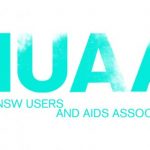Playing it Safe on the Dance Scene: An Interview with HRV DanceWize’s Stephanie Tzanetis

Victoria is renowned for its vibrant dance party scene. There’s the bush doofs held out in regional areas, the music festivals that come with the summer season, and the old skool rave scene. And at these events, not all, but a portion of punters partake in substances that are prohibited.
We’re at a point now where the war on drugs is being acknowledged as a failure. This heavy law enforcement approach has created a situation where people who are taking drugs at events like these are forced to buy these substances on the black market with no quality control.
And due to the policies of Australian state governments, these individuals have absolutely no way of checking the contents of what they’re about to consume, and whether the effects might be damaging.
The casualties of a failed policy
And the harmful effects of this zero tolerance approach are plain to see. Back in January, three people died and 20 more were hospitalised, after a deadly batch of ecstasy was being sold in Chapel Street nightclubs. The caps were actually a mix of MDMA, and the more deadly substance NBOMe.
A 22-year-old man died at the Rainbow festival that same month because he allegedly drank amyl nitrate, which is a substance that’s meant to be inhaled. While in June, six people were hospitalised after overdosing on what was suspected to be GHB in a nightclub in Melbourne’s CBD.
Drug war tactics
The reaction of the Andrews government has been to legislate for a blanket ban on legal synthetic drugs. If this becomes law, it could have the same effects as a similar ban in the UK that’s driven these substances onto the unregulated black market to wreak havoc on the streets.
And the response of Victoria police has been much the same. Recently, over a four month period, it launched Operation Safenight, which increased sniffer dog use in nightlife precincts. The force is also pushing for increased powers to search punters without having a reasonable suspicion to do so.
Harm reduction experts will tell you that these heavy-handed measures push drug use underground, and lead to dangerous drug taking practices. People attending music festivals, when faced with a sniffer dog operation, may panic and consume all of their drugs at once, and the results can be dire.
Reducing the harms
The campaign to implement pill testing, or drug checking, services at music festivals and events has been a long one. This approach has been shown to save lives, whilst also removing dangerous substances from the market in European nations where it’s been legal for decades.
Pill testing could accompany harm reduction methods already out there on the Victorian scene that are currently saving lives. An outreach program of Harm Reduction Victoria, DanceWize has been providing peer education services and resources for people at dance party events since the mid-90s.
Sydney Criminal Lawyers® spoke with Stephanie Tzanetis, a coordinator at DanceWize, about the work her organisation carries out at dance parties, festivals, and nightclubs to reduce drug and alcohol-related harms.
Firstly, Stephanie, what is the party scene like in Victoria these days?
The party scene is very diverse. And I can’t claim to know every aspect intimately. I’m aware of different scenes based on my experience of going and working at events. And also, going to events in my personal capacity.
The kinds of events we go to as DanceWize vary from multi-day, community-focused festivals in rural and regional parts of Victoria to commercial events at large venues within the metropolitan area and some nightclub entertainment venues. They vary.
DanceWize consists of a group of Key Peer Educators (KPEs). How many events do they attend a year? And what sort of services are the KPEs delivering at them?
The DanceWize team has grown quite considerably over the last few years. With our funded service agreement that we have with the Department of Health and Human Services we’re funded to do 12 to 15 events a year. That’s our core funding.
We have received some additional funding that at this stage ends at the end of the financial year, which has meant that we’ve been able to go to more events. So we’re averaging more than twenty events over the past three years.
And we have a team of more than 100 KPEs. The average team member works at three events per year. Some team members may only work at certain types of events.
So they range from these multi-day festivals, where you’ll be camping. And at those events we have a setup where we are open 24/7 for multiple days.
We have a front of house, which is our resource table. A resource table is what we have everywhere we go, whether we’re delivering education services or support for intoxicated people at events, or if we’re attending a conference, we have our resource table with our harm reduction resources.
That resource table, when we are at events, also has health supplies, like sunscreen, earplugs and water with electrolytes. It’s a basic feature that we have no matter where we are.
At these multi-day events, where we’re performing outreach, we also have a chill space. It is a safe space, where people can receive support.
And when we’re at larger events – maybe single-day format commercial events, or metropolitan-based ones with multiple stages – we also perform roving crowd care, which is just generally being out, proactive and being seen.
So someone from a peer background that can be approached if anyone has a query or is experiencing any kind of distress. When we do roving crowd care we bring with us appropriate resources and it always varies depending on the particular type of event, and also, the exact environment we are in.
So if it’s a hot day, or it’s raining, that will determine whether we’re taking a spray bottle to help people cool down on the dance floor, or possibly spare ponchos if people are underprepared for colder weather.
We tailor our service as much as possible, and seek community input into how we should tailor our services on an ongoing basis.
How long has the program been going for?
It started as a grassroots movement in the mid-90s. I believe around 1995. And that was going mostly to the multi-day camping events. People were setting up a chill space – a marque. It was their own initiative.
And that evolved because it had a lot of credibility among the community being peer-based. It was recognised as effective.
In about 99, just before the millennium, Ravesafe – the former name of the group – came under the administration of Harm Reduction Victoria. And from there the program has evolved, because as soon as you receive government funds, you have to account for those funds.
So the process of delivering services and the way we engage with our peers has formalised. But, I think we’re still true to our core values.
In 2008, the name changed from Ravesafe to DanceWize. I wasn’t here for that change. But my understanding is that it was in part because of the negative connotations attached with the word rave.
And also, in part, because we weren’t just going to those raves, or those doofs, we go to a range of different kinds of events: music events, festivals and nightclubs. So dance was a broader term, than rave.
DanceWize stresses that it uses the peer education model. Can you explain what that is? And why peer-based education is the way to go?
Peer means that you’re likely to have had similar life experiences – lived experience. And the exchange is horizontal, and it’s back and forth.
So peer educators aren’t simply disseminating information. They’re attentively listening to their community to recognise what their needs are and empower people to take self-care.
The peer education model is critical when we are in a jurisdiction where substance use is prohibited. Because the stigma, discrimination and the detrimental impact of that environment is one of the greatest harms that comes from drug use.
Knowing that you’re not going to be judged, and knowing someone is coming from a critical place of lived experience, gives people a greater sense of connection. They’re more likely to listen and engage actively.
For example, I’ve worked for Kosmicare in Portugal. The person who coordinates that – who I admire greatly and the program does fantastic work – I support her statement when she said that she didn’t think that it was essential that all Kosmicare staff be peers, as in having lived experience with drug use.
But I think you can only assert that in situations where you have decriminalisation, because there’s not that fear of having your life criminalised.
Here in Australia, we have a lot of punitive intervention. If people are experiencing any kind of drug-related distress, we punish people more often than we support them. That’s why it’s important to operate with a peer-based model.
There have been quite a few drug-related deaths and overdoses at music festivals and venues over recent months in Victoria. Why’s this occurring in the Victorian party scene at present?
It’s not just occurring in the Victorian party scene. It’s definitely something that has been seen in NSW as well, and across the country.
We have to understand the drug market has completely changed over the past decade, since about 2005, when online shopping became very popular. The drug market has completely proliferated with novel substances.
In the countries that are using sophisticated drug checking systems – for example in the Netherlands – they’re not experiencing the same issues with overdoses, because they’re able to regulate their market from the grassroots up, and that leads to weeding out the more high risk substances.
In Australia, we do not educate people about harm reduction in secondary schools. Our pop culture stigmatises drug use, so people feel compelled to keep that use underground. And therefore, they’re less likely to reach out and seek healthcare and other social support services at an earlier stage.
We have people that aren’t familiar with ways to reduce risks. We have a market that we can’t regulate with our border force, unless we’re willing to accept a military state.
Essentially, we have created the perfect storm for this global drug market to target our young people.
Would you say a lot of this has to do with people being unable to check their substances, as pill testing is not available? And are there any developments in Victoria that might suggest pill testing could be on its way?
The thing is I would never advocate for pill testing alone within the festival scene. Everyone has to take ownership for it. It requires collaboration from law enforcement.
But yes, there’s definitely a lot of action happening in this area because drug checking is evidence-based.
Sometimes when people talk about drug checking or pill testing they assume that we’re talking about reagent testing. That’s not the ideal. It’s better than nothing.
And you would want to be cross referencing reagent results with more than one kind of reagent – ideally, four or more – before you could have a reasonable indication for screening a substance. Especially, substances known to be dangerous or to determine that you have a conclusive result you need to do that cross referencing.
But, in terms of actually developing a really sophisticated pill testing service – like the DIMS system that they have in the Netherlands – you would have to have cooperation at every level.
It would have to be with law enforcement, parliamentarians, our healthcare professionals, our education system, our media, and the individuals who are participating in the community.
They all have to take responsibility, information share, and collaborate.
There are people mobilising at a community level. But, in terms of the more official space, we do have a parliamentary inquiry about drug law reform, and we’re waiting for the results in March next year. So we’ll see what way that will go.
The reaction of the Andrews government has been to table some legislation that would effectively place a blanket ban on legal synthetic drugs.
What do you think about this approach from government?
Well, Harm Reduction Victoria, along with other peak health bodies – like VAADA, the Victorian AIDS Council, campaigners like High Alert, Yarra Drug and Health Forum, Students for Sensible Drug Policy, among others – we made a joint statement earlier in the month. Because this legislation is concerning in and of itself, and nonsensical in terms of its timing.
We have just had a very comprehensive parliamentary inquiry, where more than 200 submissions were made. The vast majority of those submissions were asking for drug law reform that prioritised health over punitive measures.
And here we have a piece of legislation – that seems to have been created in a vacuum – following legislation that’s been enacted in other states and jurisdictions overseas unsuccessfully.
What it does is it’s a kind of knee-jerk reaction, where you are legislating for all these novel substances that are being created. When I was talking earlier about the proliferation of novel substances, last year in the EU database, they recorded more than 750 different novel substances.
It terms of our conventional regulatory mechanisms, it’s not possible to keep up with the number of substances that may be out there on the market. So this legislation tries to widen the net of what the definition is of psychoactive.
But you can’t do that without now intermittently capturing many things in the definition – like say avocado, nutmeg – so what it is it’s just a word that is hollow in the legislation if you make it that broad.
And then it’s all up to how you actually enforce it in practice, which requires discretion. I mean, it would be an absolute nightmare for law enforcement to try and determine what is actually expected of them with this catch all law.
It’s strange that it’s happening. And it’s not supported by anyone that works in the alcohol and other drugs sector.
The response of Victoria has been to intensify their law enforcement measures. There was Operation Safenight. And they’re also pushing to be able to search patrons without having a reasonable suspicion to do so.
What sort of outcomes are these measures going to result in?
These are textbook examples of the law enforcement approach to drug issues. And I think we can only expect to see what’s flowed from the war on drugs since it began back in 1971 with Nixon. He wasn’t a particularly popular American president. I don’t know why everyone in the world is so keen to follow him.
It’s targeting the people at the end of the supply chain. The individual people who are using the substances. So it’s creating an environment where their use is something that they need to conceal, otherwise they’re at risk of criminal charges. So they’re less likely to reach out for health services.
And the funds that are going into these operations, they could be better spent on counselling and drug treatment. Because people say, “Oh but we’ve got the diversion program, so it’s fine.” But that puts a lot of strain on our criminal justice system.
Victoria’s Legal Aid has had their funding cut so severely over the past couple of years. And it’s really sad what the merits test is for Legal Aid. In Victoria, you have to be looking at a prison sentence, before you can get Legal Aid. And that’s a really concerning threshold.
Essentially, it just means that we’ll be pumping people towards the criminal justice system, and not the healthcare system.
If someone gets a diversion and they go to counselling, all that means is that a person that was intercepted – they possibly don’t have a problematic habit at all – is forced into a counselling session, taking the place of someone who may be contemplating re-habitualising and be better suited to such services.
There’s evidence showing that if someone is not ready to go into treatment they’re less likely to be a successful candidate for treatment. So the pathway of arrest, diversion, and then counselling is ineffective in terms of drug treatment.
It’s a waste of money. And it’s never been shown to work. So I don’t understand. And I just see it as the legislative equivalent of burying our head in the sand and only taking it out every now and again to beat it against a wall.
And lastly, the KPEs are out there at festivals and nightclubs helping out punters. Although, they can’t provide pill testing services. What sort of advice are they providing?
I would really like to stress that pill testing services is an add-on. The core of harm reduction is education. It’s information.
What we are encouraging people to do is consider their body, consider their mind, and consider their environment.
So how you are feeling, look after your health in general, manage your nutrition: that’s a holistic way to look after your well-being. And be aware of your family’s mental health history. Those are the kind of factors we would prompt people to consider.
But in the moment, if you are giving advice to someone in a setting where their contemplating using a substance, or they’re already on a substance and they’re considering re-dosing, then we’d be encouraging people to think less is more. And to make sure that they’re staying hydrated.
Say if you were taking a substance like MDMA. The substance commonly sought after when they have ecstasy pills. It’s important to regulate your body temperature. If you’re inside a hot room dancing, going outside just for 5 minutes to cool down and have a little bit of water can be a life-saving intervention.
More lives have been saved by a glass of water and a little bit of sit down, I believe, than pill testing services.
Pill testing services is a way to refine a model. It makes perfect sense that you need to put the right foundations out there. We need to be educating people first.
We don’t even educate people in schools about a proper diet. And people talk about drugs and “drugs are bad.” But look at what’s in our food most of the time.
We’ve just had legislation in Victoria, similar to what you have in NSW, where you can’t smoke within four metres of an outdoor dining area, and that’s evidence-based. And that’s great.
But then we also have the World Health Organisation saying that processed meat is a type one carcinogenic.
You know there’s a lot of hypocrisy in the way that we structure things.
Stephanie thanks so much for taking the time out to speak with us today.
No worries. Thank you.







